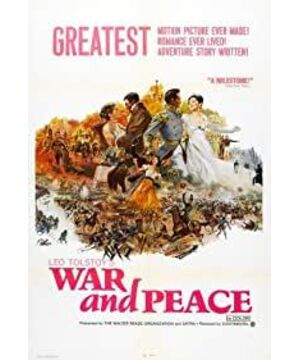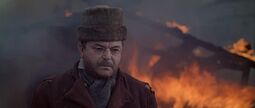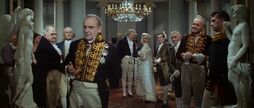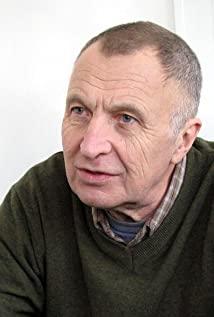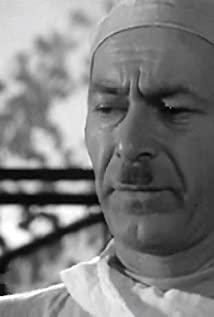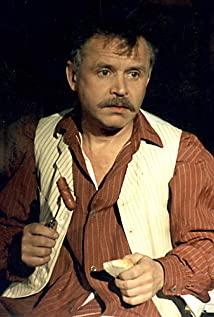Prince Andrey is not cute. He said.
The Duke is indeed not a lovely character. He is too perfect, too rational, too profound, too noble, too cold and arrogant, in fact, he does not need to be a lovely character at all. He is not even a complete individual. He is a thought, a question, a symbol, and a representative of a Russian intellectual created by Tolstoy.
But this does not prevent me from loving him. Loving someone, an illusory person who doesn't exist at all, often has nothing to do with real life. It only expresses a kind of identification, or he sees the shadow of a certain ideal personality he is pursuing.
I remembered this because I sorted out the book a few days ago and saw "War and Peace", two volumes, translated by Gao Zhi in 1981 by Shanghai Translation Publishing House and by Liu Liaoyi in 1989 by People's Literature Publishing House. They are all the versions from 20 years ago, and they are ugly now, right? Just flipping through it, I entered the fascination and shock of reading this book. I really wanted to read it again, but I thought it was too time-consuming, so I thought of watching movies as a lazy way. I downloaded the movie from Thunder, but it was the 1956 American Hepburn and Henry Fonda version and watched it. The heroes and heroines are beautiful and seductive. But I always feel that the movie is missing something. So, I used eDonkey to download the 1968 Bondarchuk movie. Take a look at this famous film that won the 1969 Academy Award for Best Foreign Language Film.
Watching movies in the former Soviet Union is very time-consuming and laborious. I still remember that when I was in college, I watched the big Soviet war movies in the university hall. Five or six hours of a movie made people grumble. Call. This Bondarchuk's "War and Peace" is also very long, four episodes, more than six hours, is a classic work by Shanghai Translation Studio.
Comparing the two, make a judgment on top of each other.
From the perspective of character modeling, perhaps the American version of Henry Fonda is more handsome, Hepburn’s Natasha is also beautiful enough, but the Americans love their stars too much, giving Hepburn too much time to make a magnificent one. The masterpiece was adapted into a love story. This love story has removed too much historical background, too much deep thinking, too many war scenes, so that the character development of several main characters, especially Prince Andre and Natasha, has no foundation, and it is a bit inexplicable. In this regard, in addition to the short movie time and limited capacity, I always feel that Americans who are optimistic by nature may have some obstacles in understanding the deep and sensitive, rational and emotional Russian character.
The history of the development of Prince Andrey's mind is an obvious example. He was ambitious at first, focused on fame, and was very rational, even thinking that people don't have to fight for faith. But when he rushed to the battlefield and witnessed his death, Austerrich's quiet and broad sky gave him an irrational "apocalypse", which made him feel the emptiness of life suddenly and changed his mind. Later the withering glory of the big oak tree gave him a similar enlightenment. This important plot that reflects the transformation of Andrei's soul is fully demonstrated by Bondarchuk, but not in the American version. And Natasha. One year after Duke Andre left, she felt empty and bored because of longing. This was an important reason why she was attracted by Anatoly. Without this reason, Natasha's elopement seemed to be Somewhat abrupt. Of course, "a lively life can't make mistakes." Natasha's innocence did not become ugly because of elopement.
But Natasha is not suitable for Andre. The love they thought existed was actually an illusion. Andre wanted to use Natasha's lively vitality to drive away the emptiness in his heart, but when Natasha agreed to his marriage proposal, his heart was full of doubts. "At this moment, in Andre's heart, the passion for Natasha has disappeared... Pursuit and hope have lost the original mysterious charm, leaving only the naive and weak pity for Natasha." The confused and serious expression on Andrei’s face in Bondarchuk’s movie clearly shows this. At a moment like love that should be emotional, his heart is full of reason, and he recognizes himself in this reason. For many years, every time I think of the character Andre, I always think, maybe, in this world, there is no woman suitable for Andre. Every woman will become another Lisa when she comes to him. Andre is not for living. At the end of the novel, Natasha and Pierre are married, have a few children, and are immersed in a busy and happy family life all day long. Pierre can, but can you imagine that Prince André would live such a life?
Henry Fonda and Hepburn in the 1950s were very young and beautiful, but just as the broad Russian social background could not be seen in the American version of the movie, their temperament did not have much Russian charm. This can be seen at a glance as long as you compare it with Bondarchuk's version of Andre and Natasha. Of course, maybe what Americans want to shoot is just a good-looking love story. Then there is no need to compare.
Pierre is another protagonist. He and Andre have different personalities and different life experiences, but like Andre, he has a lot of thinking about life and society, so people who seem so different can become true good friends. Because they are essentially the same. But Pierre was more mundane and more life.
In addition to the protagonist, there is a big contrast between the characters in the two films, and Andre's father, Paul Kansky the old. This is a character that many people don't like. He is a standard machismo who seriously despises women, thinking that women are inherently unreasonable, weak and ignorant, without thinking, and only appearance can attract men. He talked to Andre about Lisa, very interesting: difficult to deal with, isn't it? No way, women are like this...Who calls her so beautiful. Such a character has a very different image in the two films. In the American version, there is an image of an obese Russian farmer. In Bondarchuk, there is a thin nobleman wearing a fashionable wig. It is easy to think of the French aristocracy of the 18th and 19th centuries—people who know Russian history will definitely agree with this image.
Ordinarily, there is no reason to like such a person, but it is strange that I like it. I don't understand the reason. In addition, I think Andre, in a way, is very similar to his father.
Favorite character, and Kutuzov. The image of this character in the two movies is similar. On the surface, there is always a groggy, groggy look. Even before the war, others were busy running and reconnaissance, but he even slept during military meetings. It seems that he did not take any action, but in fact, he has an insight into everything, the current situation, the situation of the enemy and the enemy, and even the possibility of the future. Therefore, he made the right decision at the critical moment and became a national hero. This character reminds me of Lao Tzu's words, wise and foolish, but clever and clumsy.
Napoleon's hundreds of thousands of troops, in front of such a great Zhi Ruoyu, rolled forward, and then collapsed in despair. Is Tolstoy using war to express what he believes is the fate of Western civilization in Russia?
View more about War and Peace reviews


